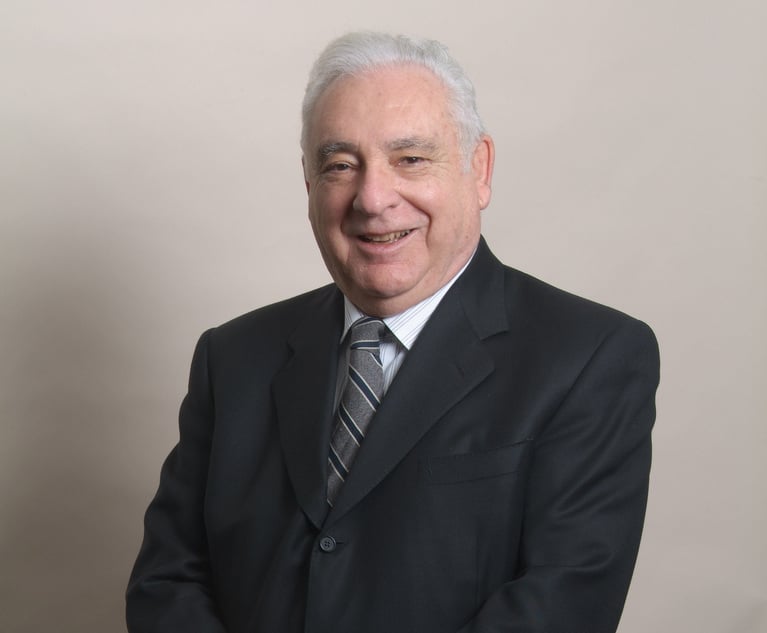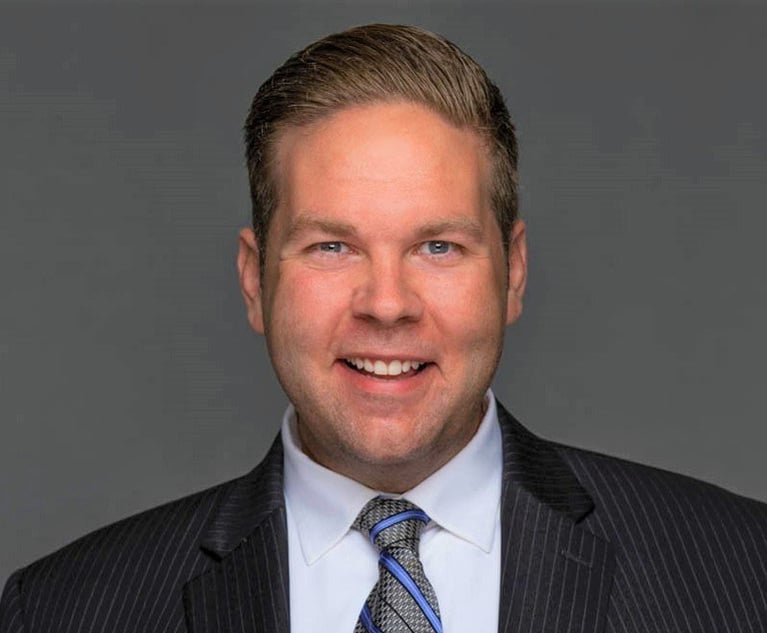 Photo: Shutterstock.
Photo: Shutterstock.Court: After Job Offer Refusal, Burden Was on Claimant to Prove He Was Too Injured to Work
The Commonwealth Court has ruled that the Workers' Compensation Appeal Board went too far in affirming an injured mechanic's suspended workers' compensation benefits.
February 06, 2020 at 03:30 PM
3 minute read
The Commonwealth Court has ruled that the Workers' Compensation Appeal Board went too far in affirming an injured mechanic's suspended workers' compensation benefits.
A three-judge panel consisting of Judges Mary Hannah Leavitt, Anne E. Covey and Christine Fizzano Cannon held that the board misstated the burden of proof in a reinstatement petition by ignoring claimant Gualberto Perez's burden to prove ongoing disability.
In 2014, Perez tore his rotator cuff while working as a mechanic for Tyson Shared Services. According to Covey's opinion, he collected unemployment benefits while recovering from surgery and was subsequently cleared for light duty. He was offered a job as a janitor in 2015 but refused.
A workers' compensation judge later suspended his benefits, reasoning that Perez was no longer disabled. On appeal, the board modified the workers' compensation judge's ruling and granted Perez's motion to reinstate benefits.
Tyson argued to the Commonwealth Court that the board mistakenly placed the burden on the employer to prove that Perez was no longer disabled and held that evidence of his doctor's clearance for modified duty was hearsay, according to Covey.
"In the instant case, the factual issue is whether claimant's loss of wages was caused and continued to be caused by his work-related injury," Covey said, noting that Perez wrongly refused the 2015 job offer.
"Thus, the burden was on claimant to demonstrate that he was disabled for the period in question. The WCJ found credible claimant's testimony that he was unable to work immediately following the Aug. 10, 2016, surgery," Covey continued. "However, the WCJ rejected claimant's assertion that claimant continued to be 'unable to work in any capacity' because it was inconsistent with both Dr. [Matthew] Espenshade's testimony and Dr. [Brian] Brislin's office notes clearing claimant to return to modified-duty work on Oct. 25, 2016."
In short, the workers' compensation judge found Perez's claims as to disability only partly credible.
"Thus, claimant's evidence that he continued to be disabled beyond Oct. 24, 2016, was found not to be credible, and there is no other credible evidence supporting claimant's position. Accordingly, claimant did not meet his burden of proving ongoing disability beyond Oct. 24, 2016, and the board erred when it modified the WCJ's decision," Covey said.
Perez is represented by Neil Kerzner of Larry Pitt & Associates in Philadelphia, who did not respond to a call seeking comment.
Tyson is represented by Joshua Schwartz of Barley Snyder, who did not respond to a call seeking comment.
This content has been archived. It is available through our partners, LexisNexis® and Bloomberg Law.
To view this content, please continue to their sites.
Not a Lexis Subscriber?
Subscribe Now
Not a Bloomberg Law Subscriber?
Subscribe Now
NOT FOR REPRINT
© 2025 ALM Global, LLC, All Rights Reserved. Request academic re-use from www.copyright.com. All other uses, submit a request to [email protected]. For more information visit Asset & Logo Licensing.
You Might Like
View All

Samuel M. Lehrer, Retired Philadelphia Court of Common Pleas Judge, Dies
1 minute read

Longtime Reed Smith Health Care Partner Opts for Solo Practice Over Retirement
3 minute readLaw Firms Mentioned
Trending Stories
Who Got The Work
Michael G. Bongiorno, Andrew Scott Dulberg and Elizabeth E. Driscoll from Wilmer Cutler Pickering Hale and Dorr have stepped in to represent Symbotic Inc., an A.I.-enabled technology platform that focuses on increasing supply chain efficiency, and other defendants in a pending shareholder derivative lawsuit. The case, filed Oct. 2 in Massachusetts District Court by the Brown Law Firm on behalf of Stephen Austen, accuses certain officers and directors of misleading investors in regard to Symbotic's potential for margin growth by failing to disclose that the company was not equipped to timely deploy its systems or manage expenses through project delays. The case, assigned to U.S. District Judge Nathaniel M. Gorton, is 1:24-cv-12522, Austen v. Cohen et al.
Who Got The Work
Edmund Polubinski and Marie Killmond of Davis Polk & Wardwell have entered appearances for data platform software development company MongoDB and other defendants in a pending shareholder derivative lawsuit. The action, filed Oct. 7 in New York Southern District Court by the Brown Law Firm, accuses the company's directors and/or officers of falsely expressing confidence in the company’s restructuring of its sales incentive plan and downplaying the severity of decreases in its upfront commitments. The case is 1:24-cv-07594, Roy v. Ittycheria et al.
Who Got The Work
Amy O. Bruchs and Kurt F. Ellison of Michael Best & Friedrich have entered appearances for Epic Systems Corp. in a pending employment discrimination lawsuit. The suit was filed Sept. 7 in Wisconsin Western District Court by Levine Eisberner LLC and Siri & Glimstad on behalf of a project manager who claims that he was wrongfully terminated after applying for a religious exemption to the defendant's COVID-19 vaccine mandate. The case, assigned to U.S. Magistrate Judge Anita Marie Boor, is 3:24-cv-00630, Secker, Nathan v. Epic Systems Corporation.
Who Got The Work
David X. Sullivan, Thomas J. Finn and Gregory A. Hall from McCarter & English have entered appearances for Sunrun Installation Services in a pending civil rights lawsuit. The complaint was filed Sept. 4 in Connecticut District Court by attorney Robert M. Berke on behalf of former employee George Edward Steins, who was arrested and charged with employing an unregistered home improvement salesperson. The complaint alleges that had Sunrun informed the Connecticut Department of Consumer Protection that the plaintiff's employment had ended in 2017 and that he no longer held Sunrun's home improvement contractor license, he would not have been hit with charges, which were dismissed in May 2024. The case, assigned to U.S. District Judge Jeffrey A. Meyer, is 3:24-cv-01423, Steins v. Sunrun, Inc. et al.
Who Got The Work
Greenberg Traurig shareholder Joshua L. Raskin has entered an appearance for boohoo.com UK Ltd. in a pending patent infringement lawsuit. The suit, filed Sept. 3 in Texas Eastern District Court by Rozier Hardt McDonough on behalf of Alto Dynamics, asserts five patents related to an online shopping platform. The case, assigned to U.S. District Judge Rodney Gilstrap, is 2:24-cv-00719, Alto Dynamics, LLC v. boohoo.com UK Limited.
Featured Firms
Law Offices of Gary Martin Hays & Associates, P.C.
(470) 294-1674
Law Offices of Mark E. Salomone
(857) 444-6468
Smith & Hassler
(713) 739-1250





